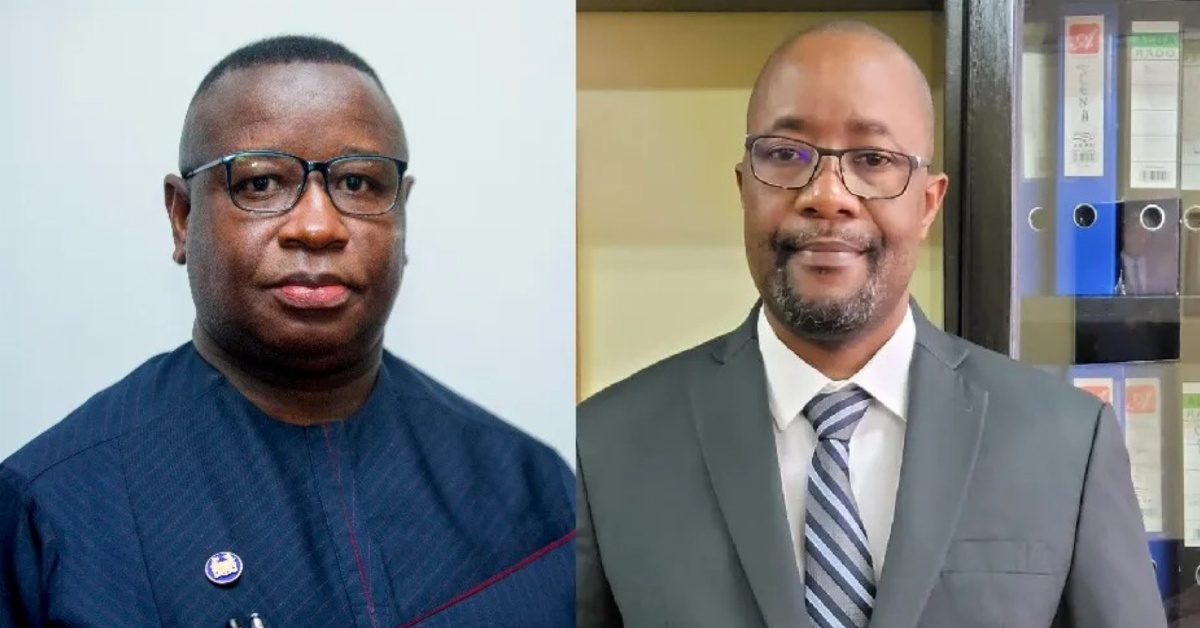“Promoting Press Freedom and Strengthening Civil Society Organisations (CSOs)” is a promise of the Sierra Leone Peoples’ Party (SLPP), which is contained in Part 4, page 71, of the party’s 2018 manifesto.
The Bio administration considers the media and civil society as the bedrock of modern governance because the media and CSOs are at the forefront in holding state actors accountable.
It is crystal clear that there have been so many remarkable media reforms in Sierra Leone since the Bio-led SLPP administration came to power in 2018. President Dr. Julius Maada Bio has been acclaimed by the international community and development partners for the unprecedented media reforms his administration has made in just 4 and half years which no government has achieved since independence.
One of the best appointments His Excellency President Dr. Julius Maada Bio made in 2018 was the appointment of Mohamed Rahman Swaray as Minister of Information and Communications. There were many other ministers in that ministry before, like Hon. Septimus Kaikai, Hon. Alhaji Ibrahim Ben Kargbo and Hon. Alpha Kanu, among others, but the accomplishments of Hon. Mohamed Rahman Swaray in that Ministry in the last four years have been record-breaking. These have helped in bringing laurels to the Bio administration.
For instance, in November 2022, the U.S. Government’s Millennium Challenge Corporation (MCC) rated the country’s Freedom of Information drive at 98%. Through the country’s freedom to access information law, citizens now have the right to request for information on the work and activities of government. This helps in promoting transparency and accountability in governance.
Under the leadership of President Bio, Sierra Leone has also progressed impressively on the World Press Freedom Index, moving 29 places from the 75th position in the index in 2021 to 46th in 2022. This is a huge milestone achievement for Sierra Leone and a clear manifestation of the commitment of President Bio’s goodies and his administration’s commitment towards deepening the on-going reforms in the media for long term viability and sustainability. This, undisputedly, is part of the things the media landscape would want to continue to see.
Indeed, since assumption of his ministerial duties, Honourable Mohamed Rahman Swaray has been strategically working effectively to address issues relating to promoting Press Freedom in Sierra Leone, as stated in the New Direction manifesto.
Before 2018, the World Bank had literally backlisted the Ministry of Information and Communications, but in just 4 years of reforms in that sector, the World Bank saw a lot of seriousness in the Bio administration and in January 2023 it came back to support the Ministry with a 50-million US dollars grant with 3 objectives; namely to enhance internet penetration, develop digital skills across the country and support government’s capacity in the delivery of digital services to its citizenry. Already, the Ministry of Information and Communications has begun implementing the National Digital Transformation Project.
The implementation of the digital transformation project would contribute to the development of all sectors of the Sierra Leonean economy which would facilitate economic growth, job creation, and the development of new business opportunities.
In addition, the project aimed at introducing e-cabinet, digitalising parliament with e-legislature system to enable constituents to effectively engage with their MPs for service delivery, time attendance management policy to address delinquency in the public service with a digital time management system (which has been introduced in 24 MDAs so far) to improve effective service delivery.
Today, there is a new dawn in the media landscape in Sierra Leone making, it a win-win situation for the government, civil society, and the media.
In the traditional media, the Ministry of Information and Communications has upgraded the status of the Sierra Leone Broadcasting Corporation (SLBC) to make it a real viable state broadcasting corporation. Since 2018, the SLBC radio and Television channel have increased their coverage nationwide with broadcast of live events on radio, TV, Facebook and other social media forums. Both the radio and television now feature news and outreach activities of government, opposition parties, civil society and other public interest stories in a professional and balanced manner.
Also worthy of note is that the Minister of Information and Communications, Hon. Mohamed Rahman Swaray, on the 26 August 2022, launched the maiden edition of “Leh we tok with the Minister bot govment” on Facebook; a krio talk show in which the Minister interacts with Sierra Leoneans on the work and activities of the government. In the show, which has been viewed by thousands of people online, the Minister also features other cabinet ministers to discuss issues of governance. For the first time in Sierra Leone’s history, members of the public are given the opportunity to directly ask questions about governance issues, thereby putting cabinet ministers into scrutiny, and many followers of the show have commended the Minister of Information for such a laudable initiative.
One of stellar goodies of the Bio presidency relates to one of the greatest legal reforms this country has ever made in its history; this has to do with the repeal of the 57-year-old criminal and seditious libel law. The repeal of Part V of the criminal libel law is a landmark achievement for President Bio and his government. A detailed narrative of this would be featured in the next edition of ‘Goodies of the Bio Presidency’.



 Post a comment
Post a comment








